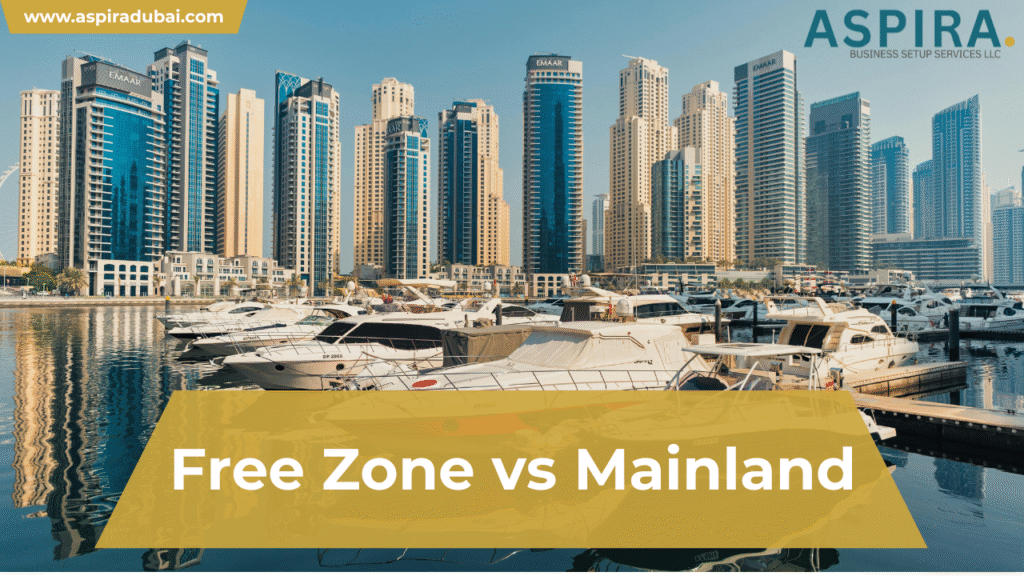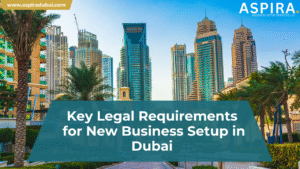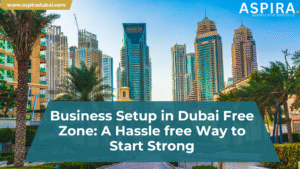Quick Summary
- Free Zone: 100% foreign ownership, lower taxes, limited onshore trade.
- Mainland: Full UAE market access, 9% corporate tax, some local partner rules.
- Choose based on: your market focus, ownership goals, and budget.
Introduction
The United Arab Emirates (UAE) remains one of the world’s most attractive destinations for entrepreneurs and investors. When starting a business here, you’ll encounter two main options: free zone and mainland company formation.
Each structure offers unique advantages, costs, and regulations. Choosing the right setup affects your ability to trade, repatriate profits, and benefit from tax incentives. This 2025 guide breaks down everything you need to know from ownership and licensing to visa quotas and costs so you can make an informed decision for your business.
What Are Free Zones and Mainland Companies?
Free Zones Explained
Free zones (also called free trade zones) are designated economic areas that allow 100% foreign ownership, tax exemptions, and simplified import/export rules. Each free zone has its own authority and regulations.
Examples: Dubai Multi Commodities Centre (DMCC), Jebel Ali Free Zone (JAFZA), Abu Dhabi Global Market (ADGM).
Free zone companies typically operate within their zone or internationally. To trade directly in the UAE mainland, they must use a local distributor or obtain a dual licence.
Mainland Companies Explained
Mainland companies are registered with the Department of Economy and Tourism (DET) in Dubai or the equivalent authority in other emirates. They can trade anywhere in the UAE or abroad without restrictions.
Since 2021, many activities allow 100% foreign ownership, though some strategic sectors still require a UAE national partner. Mainland companies must comply with national laws, including the 9% corporate tax introduced in 2023–24.
Key Differences Between Free Zone and Mainland UAE Companies
1. Ownership and Shareholding
- Free Zone: 100% foreign ownership; full profit repatriation.
- Mainland: Up to 100% foreign ownership in many sectors, though some still require a local sponsor holding 51%.
2. Location and Office Requirements
- Free Zone: Flexible office options co-working desks, flexi offices, warehouses. Must lease space within the zone.
- Mainland: No geographic restrictions; can open offices, shops, or branches anywhere in the UAE.
3. Visa Eligibility
- Free Zone: Limited visas based on office size.
- Mainland: Broader visa quotas, ideal for larger teams.
4. Regulatory Authority
- Free Zone: Governed by respective zone authorities.
- Mainland: Regulated by DET or other emirate departments; must follow federal labour, immigration, and tax laws.
Pros and Cons
Advantages of Free Zone Companies
- 100% foreign ownership
- 0% or reduced corporate tax (on qualifying income)
- Streamlined setup process
- Access to high-tech infrastructure
- Ideal for export-oriented, consulting, or e-commerce businesses
Disadvantages of Free Zone Companies
- Restricted on direct mainland trade
- Limited activity scope per zone
- Visa quotas tied to office space
- Renewal fees and lease costs vary
Advantages of Mainland Companies
- Operate anywhere in the UAE
- Eligible for government contracts
- Broader business activity options
- Larger visa quotas
Disadvantages of Mainland Companies
- 9% corporate tax on profits above AED 375,000
- Some sectors still need local partners
- Higher office rental requirements
- Multi-authority compliance
Cost Comparison: Free Zone vs Mainland (2025)
| Expense Category | Free Zone (Approx.) | Mainland (Approx.) |
|---|---|---|
| Business Licence | AED 5,500 – 20,000 | AED 10,000 – 30,000 |
| Office Rent | AED 15,000 – 50,000 (flexi desks) | AED 30,000 – 100,000+ |
| Corporate Tax | 0% on qualifying income | 9% above AED 375,000 |
| VAT Registration | Mandatory if > AED 375,000 turnover | Mandatory if > AED 375,000 turnover |
| Sponsorship Fees | Not applicable | May apply if 100% foreign ownership not allowed |
| Visa Fees | AED 4,000 – 7,000 per visa | AED 3,000 – 6,000 per visa |
Note: Costs vary by emirate and zone. Always request updated quotes from your business consultant.
Step-by-Step Guide: Choosing the Right Setup
- Define your activity – Trading, services, or consultancy.
- Evaluate your target market – UAE residents vs international clients.
- Assess ownership preferences – 100% ownership or local partnership.
- Compare costs and facilities.
- Seek professional guidance from experts like Aspira Business Setup to streamline documentation, licensing, and visa procedures.
Frequently Asked Questions (FAQ)
1. Can a free zone company trade with mainland customers?
Generally, no — unless you appoint a local distributor or obtain a dual licence. If your target market is primarily within the UAE, a mainland setup may be more practical.
2. Is 100% foreign ownership possible on the mainland?
Yes, for most activities since 2021. However, strategic sectors such as energy or certain professional services may still need a UAE national partner or agent.
3. Which setup is cheaper: free zone or mainland?
Free zones often have lower startup costs due to bundled packages, while mainland licences may cost more initially but offer unrestricted UAE market access.
4. How long does company formation take?
- Free Zone: 2–4 weeks
- Mainland: 3–6 weeks (depends on activity and approvals)
5. Do I need to visit the UAE?
Many free zones support remote incorporation. Mainland companies may require one visit for document signing or bank account setup.
6. What visas can my company sponsor?
Both can sponsor owners, employees, and dependents. Visa quotas depend on office space and activity type.
7. How does corporate tax apply?
A 9% federal tax applies to business profits above AED 375,000. Qualifying free zone income may still be tax-exempt under specific conditions.
Conclusion: Making the Right Choice
Choosing between a free zone and mainland UAE setup depends on your business model, market reach, and long-term objectives.
- Go for a Free Zone if your operations are international or online, and you want full ownership with minimal bureaucracy.
- Choose Mainland if you plan to target local clients, open retail stores, or bid for UAE government projects.
Whatever your decision, partnering with a reliable consultant ensures compliance, efficiency, and peace of mind.
Ready to start your UAE business journey?
Let Aspira Business Setup guide you from idea to incorporation. We’ll handle trade licenses, visas, and corporate structuring — so you can focus on growth.
📌 Aspira Business Setup Services
📧 Email: info@aspiradubai.com
📞 Call/WhatsApp: +971 56 406 6546
🌐 Website: www.aspiradubai.com









